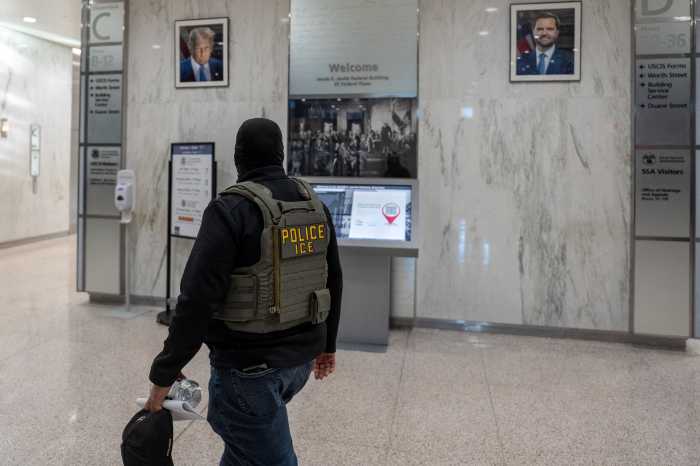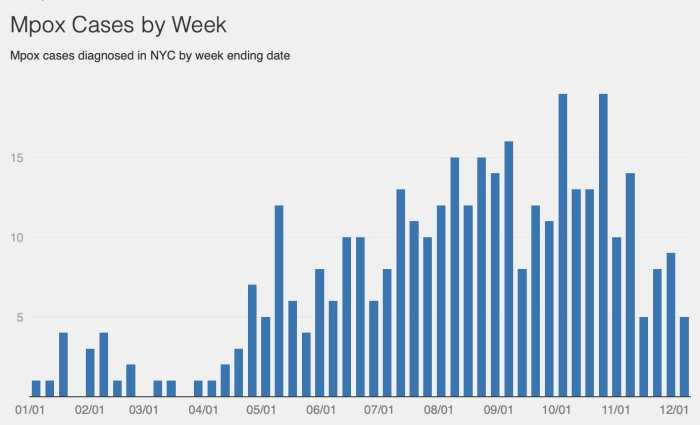Foreign Service applicant given trial on employment bias claim
A man denied a position in the U.S. Foreign Service because he is HIV-positive is entitled to a trial of his discrimination claim under the Americans With Disabilities Act (ADA), according to a June 27 ruling by the U.S. Court of Appeals for the District of Columbia Circuit.
Ruling on an appeal brought by Lambda Legal on behalf of Lorenzo Taylor, the court found that U.S. District Judge Rosemary Collyer erred in dismissing the claim last year. Lambda’s former principal AIDS attorney, Jon Givner, argued the appeal.
Taylor, HIV-positive since at least 1985, has thrived on anti-retroviral therapy, and his doctor said he could serve anywhere the Foreign Service might send him. He was found highly qualified in the rigorous Foreign Service hiring process and received a provisional offer of employment, pending a satisfactory medical clearance.
The state department, however, continues to take an unbending position, not revised since the treatment revolution of the mid-1990s, that people with HIV-infection are categorically ineligible to be hired into the Foreign Service. Taylor’s job offer was revoked.
The state department maintains that junior Foreign Service officers must be available for worldwide assignment, and that many of the places they could be sent do not have adequate facilities to provide HIV care, posing a significant risk for employees with the virus. In contrast, sending HIV-positive officers only to places with high quality medical facilities—likely the most desirable assignments—would destroy morale among everyone else.
The ADA provides that qualified individuals with disabilities—those who can perform a job’s essential functions with or without reasonable accommodations—may not be discriminated against in hiring. Reasonable accommodation is defined by whether it is feasible and would spare the employer any undue burden.
Judge Collyer ruled last year that as a matter of law the accommodations that Taylor would need would not be reasonable and would pose an undue burden on the state department, but the court of appeals disagreed on every point, finding that these conclusions overlooked serious factual disputes only resolvable in a trial.
Taylor claims that he would be able to serve in just about any hardship posting, provided he could use personal leave time—allowed under policies governing junior Foreign Service assignments—to travel for semi-annual check-ups should such services not be available locally. He showed that every posting lacking adequate medical facilities was within an hour’s flight of a major population center which has them. He also offered evidence that a much larger percentage of the worldwide postings have adequate medical facilities than the state department admits.
Perhaps even more convincing to the court of appeals was Taylor’s evidence that the Foreign Service has over the past few years hired at least a dozen applicants disqualified from worldwide posting due to asthma, but given postings only in medically adequate locations. The state department provided no reasonable explanation why Taylor should not be hired under the same procedures. And active Foreign Service officers found to have contracted HIV are treated similarly. Why not treat Taylor the same way if in fact his argument that he could be posted anywhere is rejected?
During his internal appeals within the state department, his asthma was articulated as a second reason for denying him employment, in addition to the originally stated explanation regarding his HIV status. He made the same two arguments regarding this condition as he had about being HIV-positive.
The opinion for the court of appeals by Judge Raymond Randolph ultimately concluded that on virtually every important point there were factual disputes that needed to be resolved at trial. The case was sent back to the district court, and given the strongly worded appellate decision, the state department might choose to negotiate a change in policy with Lambda. Alternatively, the government could seek further review from the full D.C. Circuit and eventually the Supreme Court, which has never weighed the issue of “reasonable accommodation” regarding medically-controlled HIV infection.
gaycitynews.com




































